Director of Department of Health: There is unhealthy competition between non-public medical facilities
(Baonghean.vn) - The implementation of the socialization policy in the health sector has led to many shortcomings, such as the "blooming" of non-public health facilities, commercialization, and unhealthy competition between health facilities, causing difficulties for state management.
On the afternoon of August 2, the Supervisory Delegation of the Provincial National Assembly Delegation had a working session with the Department of Health on the results of 10 years of implementing Resolution No. 18/2008/QH12 dated June 3, 2008 (Resolution No. 18) of the 12th National Assembly on promoting the implementation of socialized policies and laws to improve the quality of health care for the people.
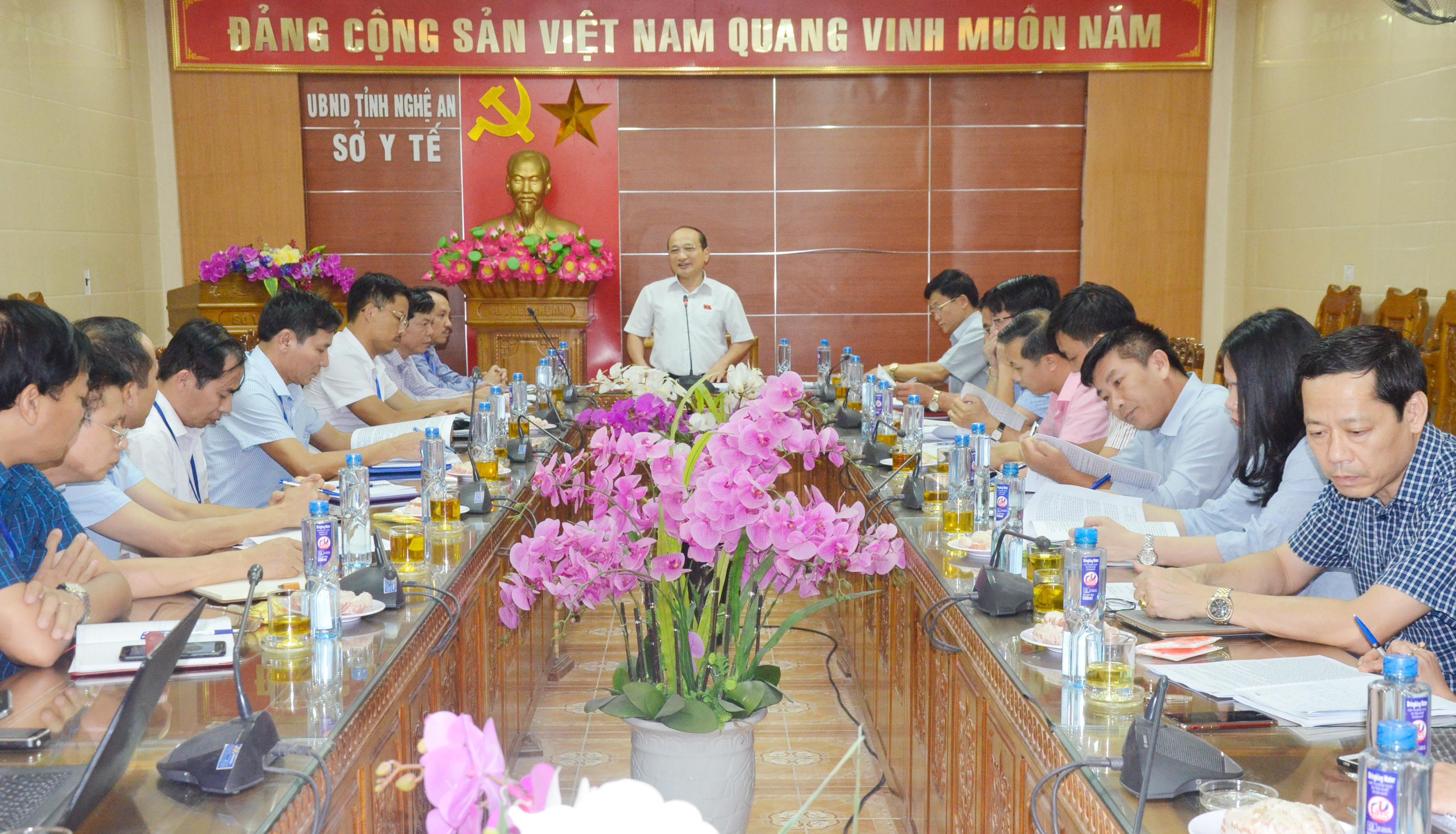 |
Attending the meeting were Deputy Heads of the Provincial National Assembly Delegation Nguyen Thanh Hien and Tran Van Mao; representatives of provincial departments, branches and sectors. Photo: Thanh Le |
There are still many shortcomings and problems.
The report of the Department of Health assessed that after 10 years of implementing Resolution No. 18, medical examination and treatment have had many positive changes. Many new, difficult and modern techniques have been applied to meet the people's needs for medical examination and treatment. Socialization has achieved many important results, reducing the burden of public investment in health care in difficult budget conditions.
In addition to the achieved results, the Department of Health pointed out that the quality of medical examination and treatment and the development of new techniques in some medical examination and treatment facilities are still limited; the transfer of techniques from upper levels to lower levels has not been implemented much, especially in the number of district and mountainous hospitals. The investment budget for health care is still too low compared to the development needs.
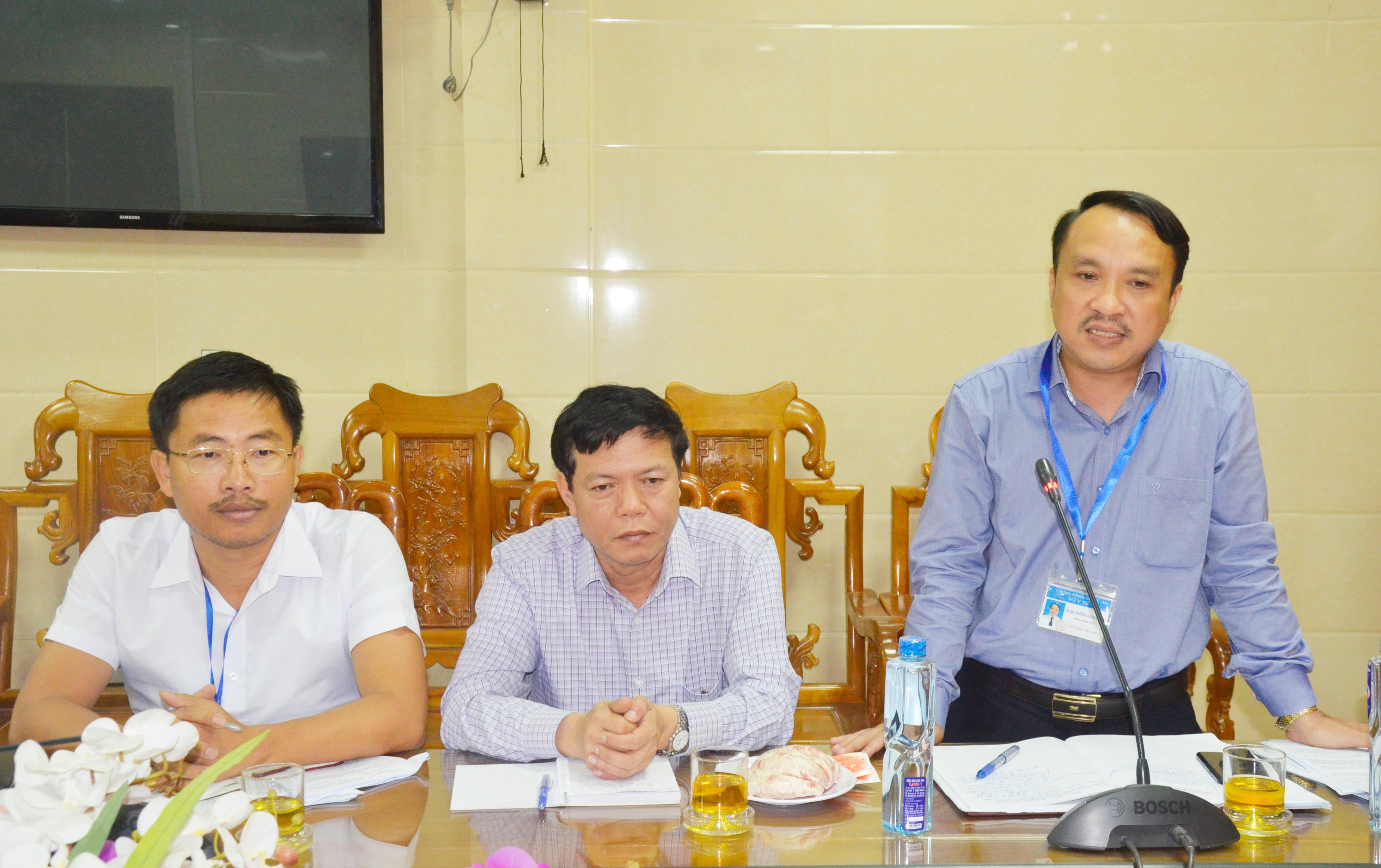 |
| Director of the Department of Health Duong Dinh Chinh reflects on the shortcomings and difficulties in implementing Resolution 18. Photo: Thanh Le |
Disease patterns are changing, infectious diseases are becoming more complicated, and infectious diseases tend to increase. The payment of health insurance examination and treatment costs in recent times has had many problems. The implementation of health socialization is still confusing and unsynchronized; there is a shortage of high-quality human resources in the health sector, etc.
According to the Director of the Department of Health, Duong Dinh Chinh, the socialization policy is necessary, especially when state resources are still limited. As a result, from the socialization policy, Nghe An has many non-public hospitals established, reducing the burden on public hospitals. Thanks to the socialization, investment in hospital facilities and equipment has increased.
However, the implementation of socialization policy in the health sector has led to many shortcomings, namely the "blooming" of non-public health facilities.
The commercialization and unhealthy competition among medical facilities have caused difficulties for state management as well as ensuring the quality of medical examination and treatment for the people. The problem is that it is necessary to re-plan the network of non-public medical examination and treatment.
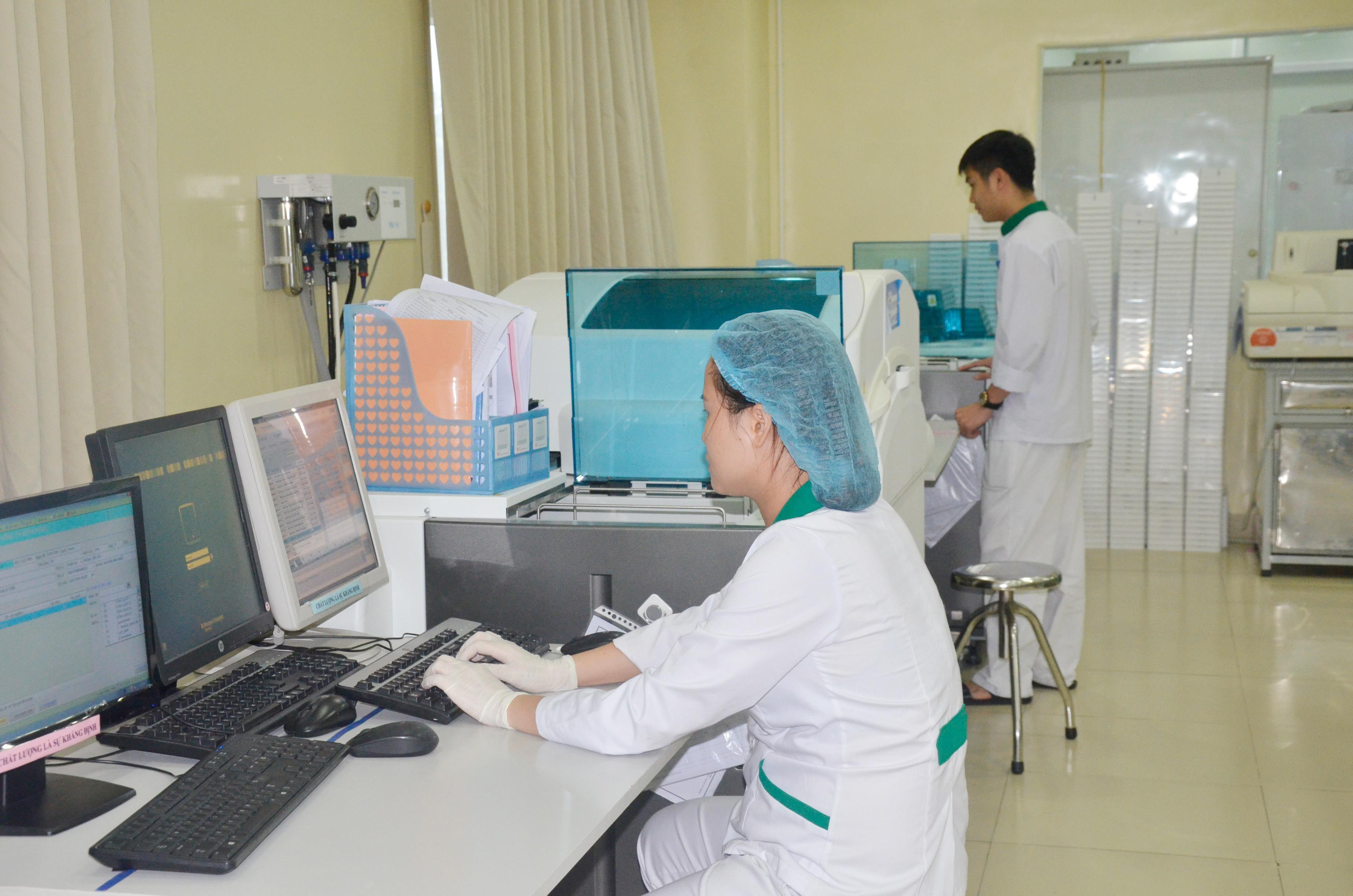 |
| Hospital equipment has been invested in more thanks to the socialization policy. Photo: Thanh Le |
Regarding the planning of non-public medical facilities, Vice Chairman of the Provincial Fatherland Front Committee Nguyen Duc Thanh cited that in 2008, the whole province had 1,077 facilities, but in 2019, there were up to 2,645 private non-public medical and pharmaceutical facilities, but these facilities were only concentrated in the city and central areas. That shows that the planning of the medical network is still inadequate.
“Many private medical facilities practice medicine without a license or borrow a license to practice. The problem is that the health sector needs a long-term solution to develop the health network from the policy of socialization,” Mr. Nguyen Duc Thanh proposed.
Human resource problem
Discussing at the meeting, members of the monitoring delegation requested the Department of Health to clarify the following issues: Doctor/bed ratio, doctors at the commune level; solutions for socialized management; implementing joint ventures between medical facilities and investors according to Decree 151 on public asset management.
The implementation of the autonomy mechanism of hospitals; the organization of the apparatus in public hospitals; the policy mechanism to attract human resources, especially in district-level medical facilities, difficult mountainous areas, and grassroots medical facilities; the inadequacies in implementing the policy of connecting routes; and the removal of difficulties in implementing cumbersome procedures and projects for socialization...
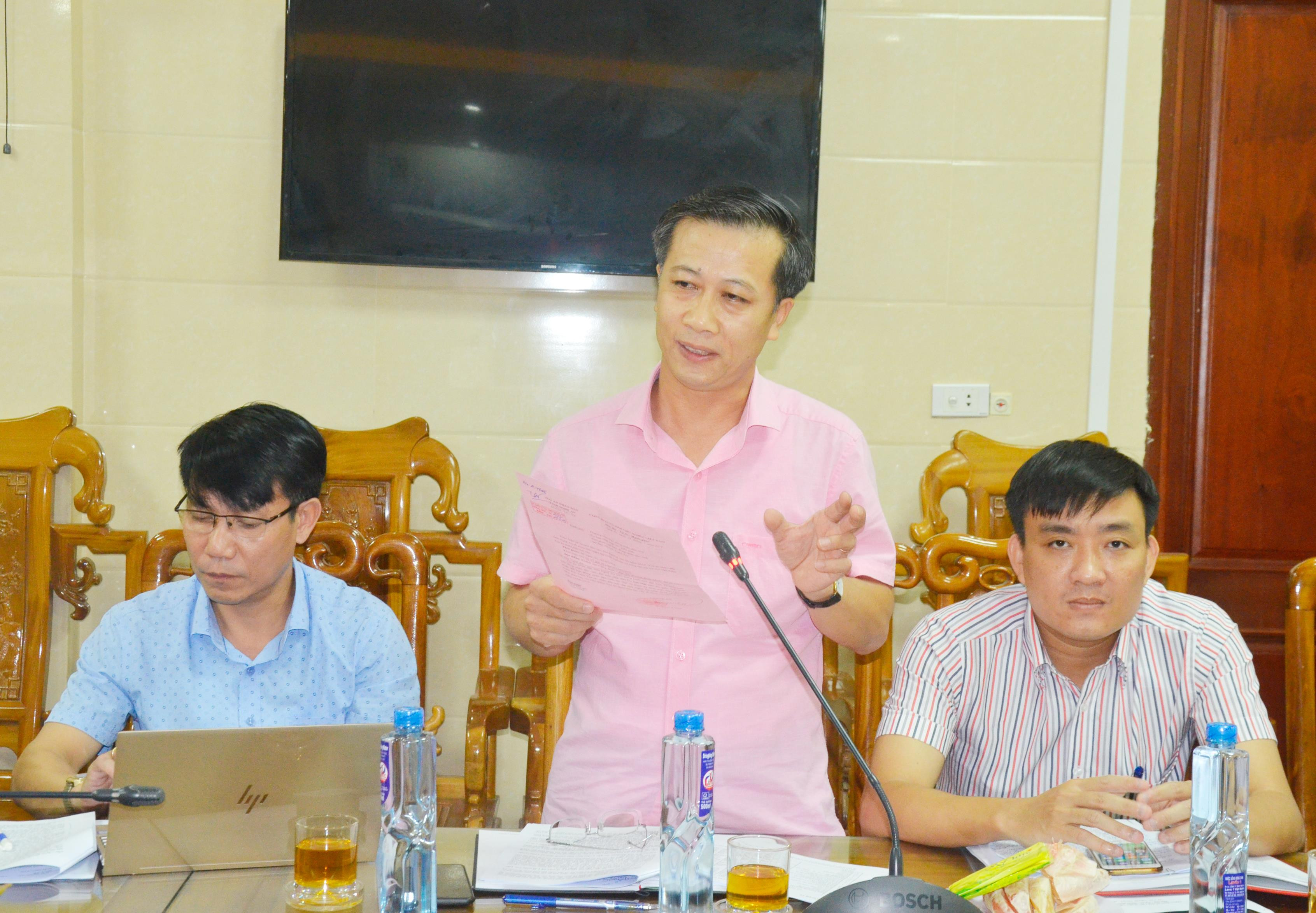 |
| Vice Chairman of the Provincial Fatherland Front Committee Nguyen Duc Thanh proposed strengthening State management of private medical and pharmaceutical establishments. Photo: Thanh Le |
Clarifying the issues of concern to the monitoring delegation, Director of the Department of Health Duong Dinh Chinh expressed his concern: One of the difficulties of the provincial health sector is the shortage of human resources, especially the lack of highly qualified doctors. This is a difficult problem for the provincial health sector. Although the province has its own mechanism, attracting and retaining qualified doctors to work at the hospital is very difficult.
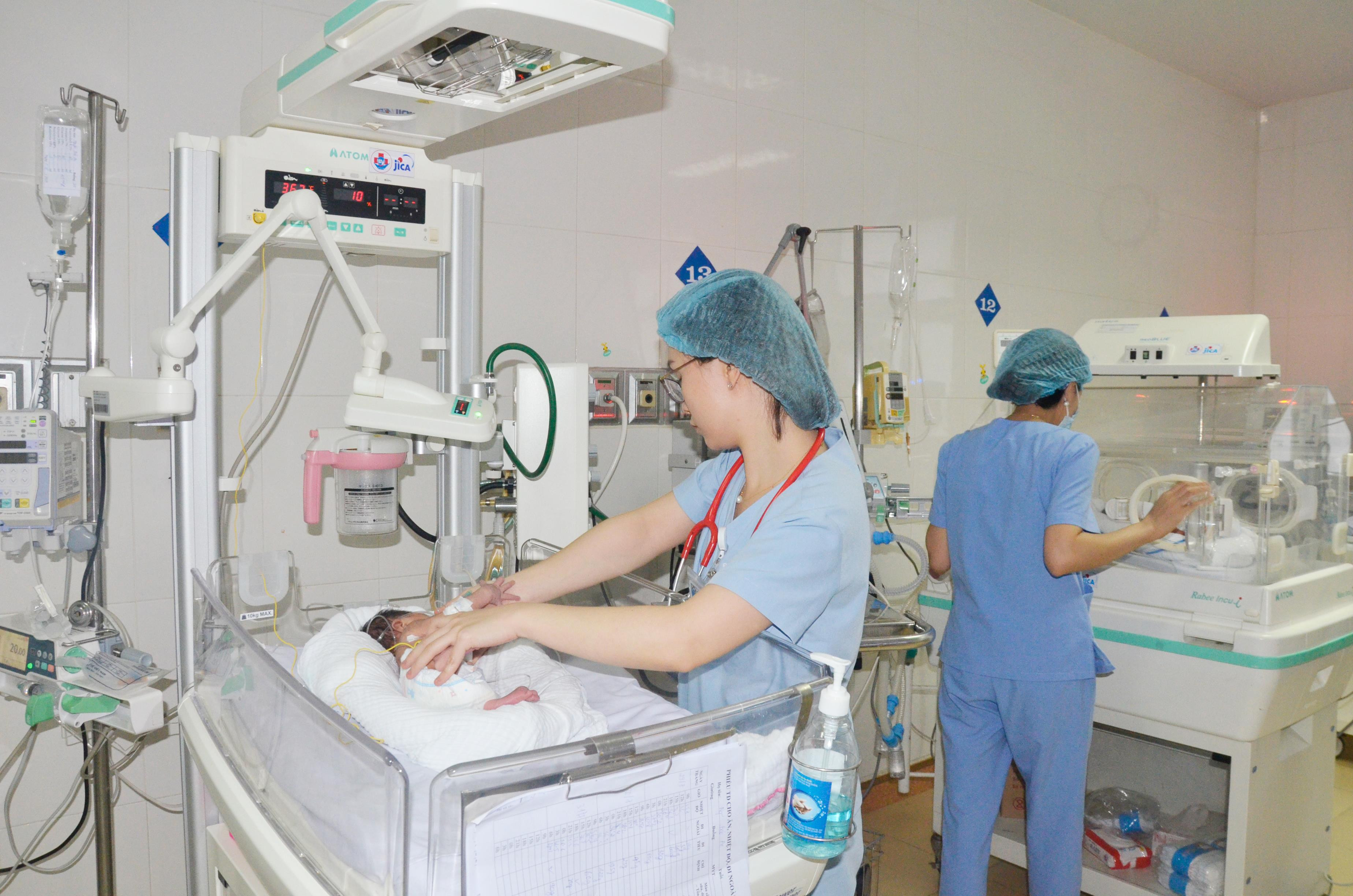 |
| Special care for newborns at Nghe An Obstetrics and Pediatrics Hospital. Photo: Thanh Le |
Concluding the meeting, Deputy Head of the Provincial National Assembly Delegation Nguyen Thanh Hien acknowledged and highly appreciated the implementation of Resolution 18 of the provincial Health sector.
The Deputy Head of the Provincial Delegation of National Assembly Deputies hopes that the Department of Health will continue to do a good job of advising the province and the Ministry of Health on problems and difficulties in the health sector so that they can be promptly adjusted; promptly advise the province to adjust the medical examination and treatment network in the province appropriately; carefully study and reasonably apply the socialization model.
The health sector continues to pay attention to policies on recruitment, attraction and training of human resources, especially a team of highly skilled doctors; strengthen state management, continue to improve the quality of medical examination and treatment...
Regarding the difficulties and inadequacies in the implementation of the Laws and sub-Laws on the Health sector, the Provincial National Assembly Delegation will receive and synthesize recommendations to the National Assembly, the Ministry of Health and Vietnam Social Insurance to amend and replace a number of legal documents suitable for the implementation of tasks in the current period.

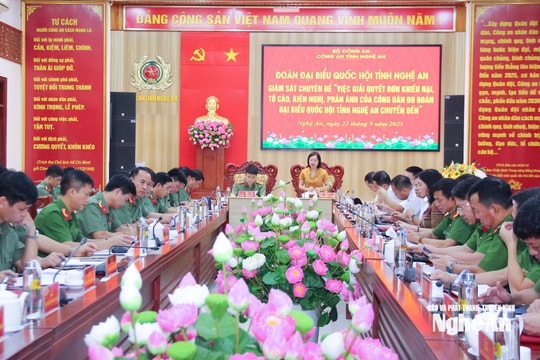
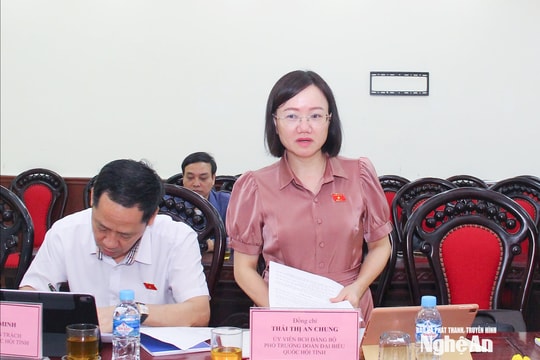

.jpg)
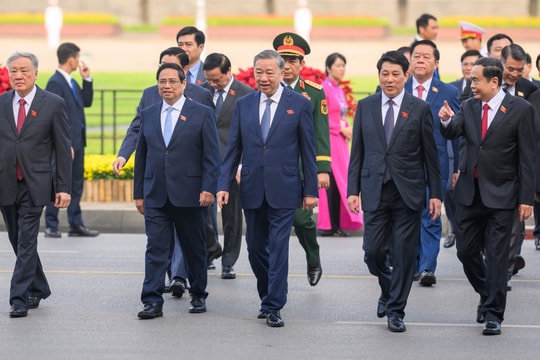

.jpg)
